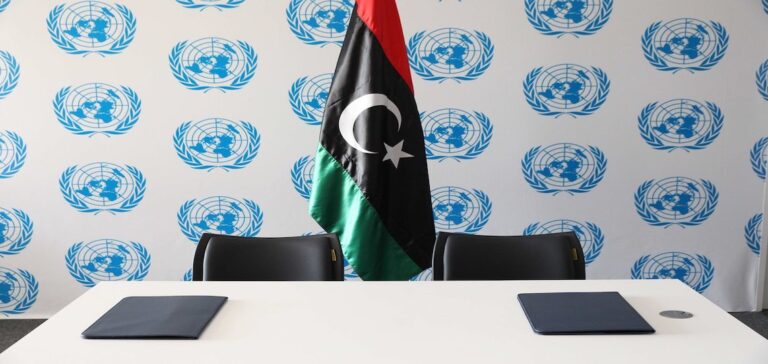On Saturday, the UN welcomed the establishment of a mechanism to share oil revenues in Libya, the object of ongoing disputes between rivals in this divided country, against a backdrop of threats from the eastern camp to block hydrocarbon exports.
Libyan oil: Creation of the High Financial Commission for the Transparency of Public Funds
The UN Support Mission in Libya (Manul) “welcomes” the creation of a “high financial oversight commission to address fundamental issues of transparency in the expenditure of public funds and the equitable distribution of resources”, according to a statement on Saturday.
The Presidential Council (PC), the highest authority in the executive branch, has announced the creation of a “high financial commission”, charged with “determining the components of expenditure”, according to a decree circulated by local media.
Libyan Oil at the Heart of the Country’s Political Chaos
Endowed with Africa’s most abundant oil reserves, Libya has been plunged into chaos since the fall of Muammar Gaddafi’s regime in 2011, and is shaken by divisions between the east and west of the country. Two governments have been vying for power for over a year: one in Tripoli (west), recognized by the UN and led by Abdelhamid Dbeibah, the other in the east, backed by the very powerful Marshal Khalifa Haftar.
On the other hand, the Tripoli-based National Oil Company (NOC) and Central Bank manage the country’s oil revenues. They remain the country’s main source of income and are often at the heart of disputes between rival camps. The commission, which will be chaired by CP President Mohamed el-Manfi, is made up of 18 members representing the Dbeibah government, the NOC, the two chambers, the Court of Auditors, the Administrative Control Authority, as well as Marshal Haftar’s army.
Manul, which sees this as “a political consensus” between rival institutions and political players, hopes that such an “inclusive approach” can strengthen “transparency in the management of public funds and an equitable distribution of national resources”.
Libyan Oil and Revenue Management
On Monday, in a speech to army officers in Rajma (25 km east of Benghazi), Khalifa Haftar called for an equitable sharing of oil revenues, announcing “a deadline until the end of August” for a commission to take charge. Otherwise, “the armed forces will be ready to respond to instructions when the time comes”, he warned, without giving any further details.
On June 24, Osama Hamad, head of the parallel executive installed in the east, the region which remains under Haftar’s control and where the most important oil terminals are located, had threatened to block hydrocarbon exports, demanding the seizure of oil revenues managed by his rivals in the west.





















